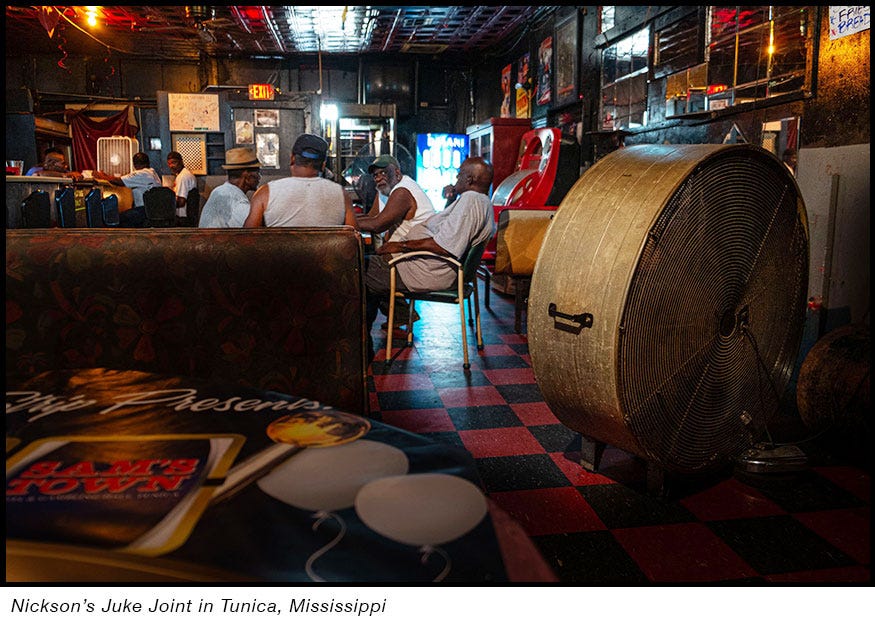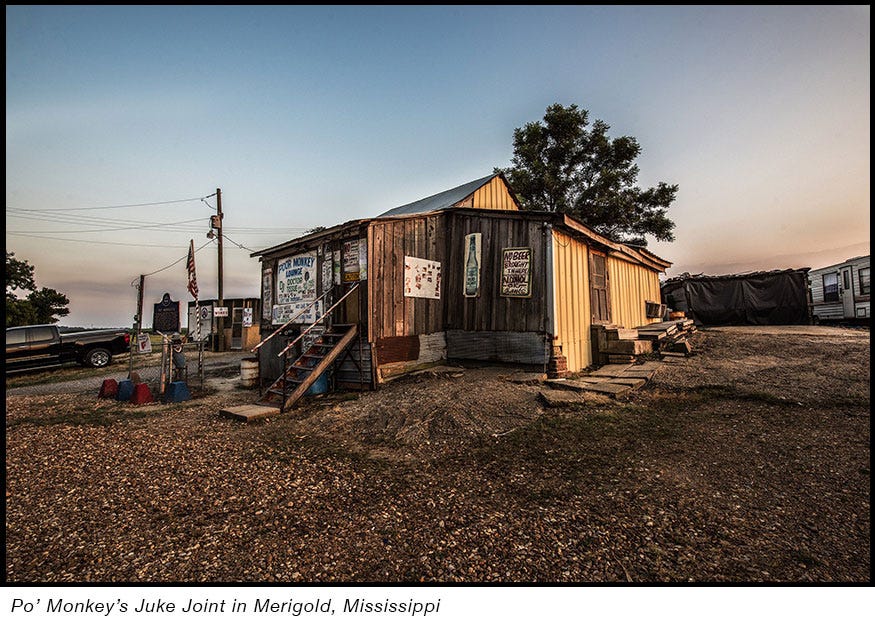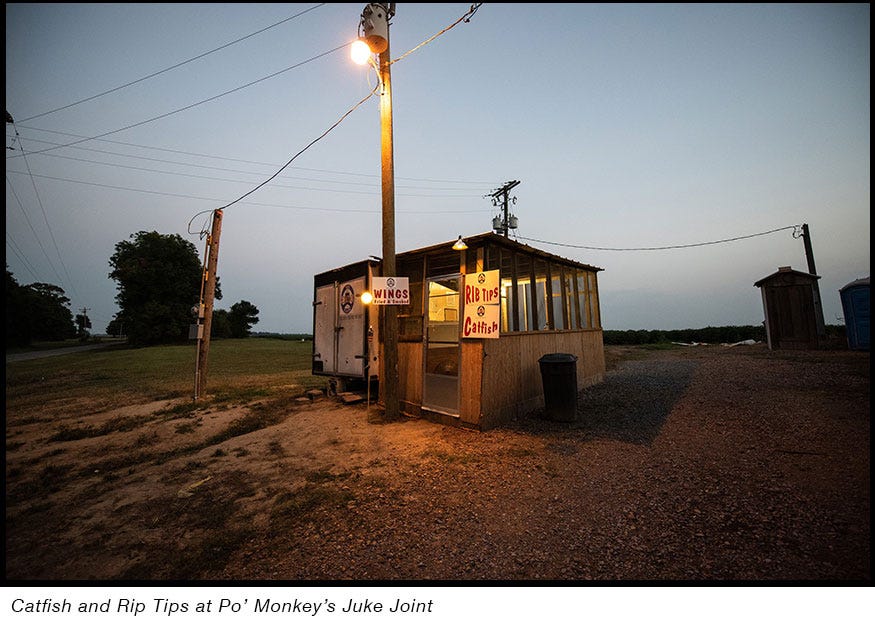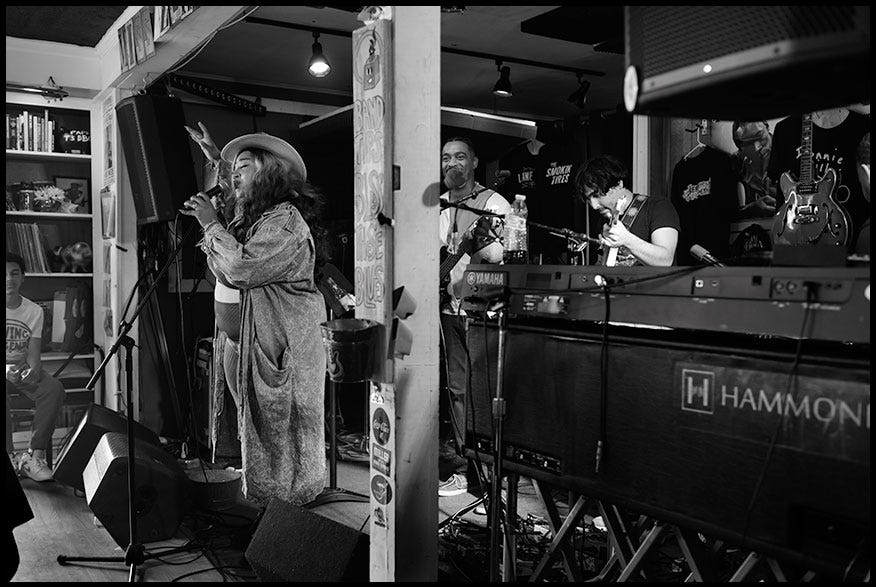According to Wikipedia: The term "juke" is believed to come from the Gullah word joog or jug, meaning rowdy or disorderly which itself is derived from the Wolof word dzug meaning to misconduct one's self.
Regardless of the name’s origins, the Juke Joint began at the time of emancipation for the (then) black slaves throughout the American south, as places of entertainment and relaxation for black Americans who were not permitted in white establishments.
Here one would find food, drink, music, dancing, and gambling. Some Jukes also sold groceries, and provided low cost lodging.
I know of only one that still exists today: Nickson’s, in Tunica, Mississippi. I had the pleasure of visiting Nickson’s several years ago while working on a story in the Mississippi Delta. I stumbled upon it purely by accident as I turned onto a side street in Tunica to turn around. Inside it was dimly lit. Across the entire front of the large building was a porch.
To the right as I entered through the front door, was the bar. Tables and chairs filled the large cavernous interior. A large industrial fan circulated the warm air throughout the room. At one table sat a small group of men playing poker. Music played from a Jukebox.
On that same trip I also discovered Po’ Monkey’s Juke Joint in Merigold, Mississippi, which is no longer there since the passing of its owner, Mr. Willie (Willie Seaberry) in 2016.
Po’ Monkey’s opened its doors in 1963 and was one of only a few authentic juke joints to survive into the 21st century. Owned by Willie Seaberry, (Mr. Wille), the Juke joint was actually his house - a small wooden sharecropper-style house situated at the end of a gravel dirt road. Beside the house was a smaller building that served fried catfish
Inside the juke joint were a few moderate-size rooms; one had a pool table, another was the dance floor. Colored Christmas-style lights were strung throughout the interior. Mr. Wille had rules for those who entered his establishment - with most being posted on the exterior of the house in large signs: “No loud music, no dope smoking, no rap music.” to name but a few
Patrons could bring their own hard liquor as long as they purchased the mixers from Mr. Wille. Beer could also be purchased inside.
On the outskirts of Nashville, Tennessee is Miss Zeke’s Juke Joint, located in the marina of Percy Priest Lake, which shares its space with Papa Turney’s BBQ, owned by her husband.Miss Zeke’s is a traditional-style juke joint, but unlike most jukes, Miss Zeke’s offers live music. One of the artists that plays there, on the last Sunday of each month, is saaneah.
In the small, packed-to-the-rafters room, people are seated at long tables situated back to front in the room. The audience stops only feet before where the performer stands. Along the back wall people stand. Off to the right of the room is a never-ending line of people waiting to order their bbq.
In an era when the Juke Joint was nearly lost to history, Miss Zeke’s is reviving the legendary establishments, and people are responding as they always have - by flooding in to experience the energy that has always been indicative of such venues.










Great Article. Love the photos!